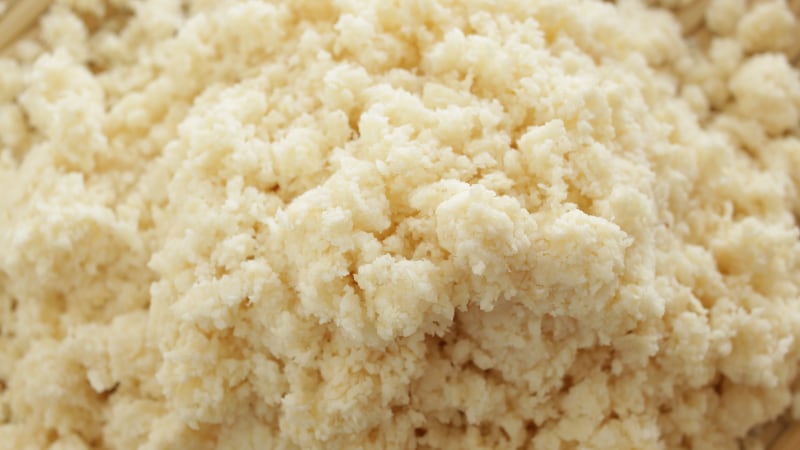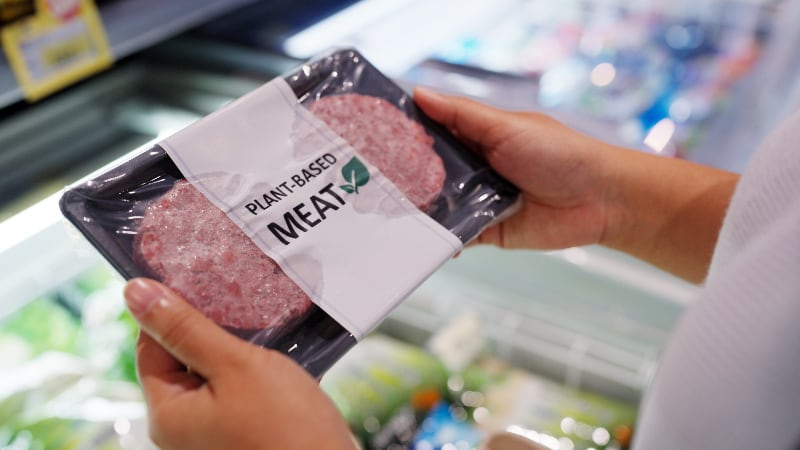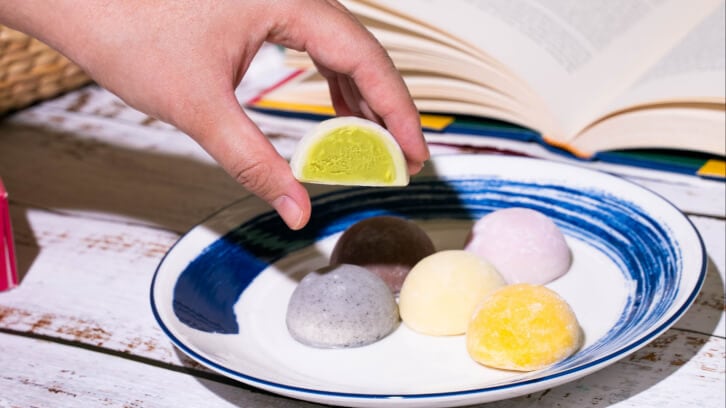After being selected as one of the winners of the inaugural DBS Foundation X National Environment Agency (NEA) Hungry for Change Challenge launched in August 2022, Daryl Pek and Jian Yong Chua, co-founders of Mottainai Food Tech, channelled resources into the development of their plant-based brand called Jiro-Meat.
“Chua came up with the name because Jiro sounds like both zero and ‘ji rou’ (chicken in Mandarin). Our plant-based meat is upcycled from okara (soy pulp), cost-effective, and clean label. It’s a meat alternative that food manufacturers or anyone who buys it can use on its own, or add flavourings like salt and sugar to create their own recipe,” Pek told FoodNavigator-Asia.
Okara is a commonly discarded by-product of soya milk and tofu production. Through fermentation technology, Jiro-Meat upcycles it into a meat substitute that claims to offer natural meat-like taste and texture.
“In Singapore, about 10,000 tonnes of okara are generated annually but there don’t seem to be good ways to manage them. Some firms even pay waste companies to collect them.
“Also, okara is highly perishable and not easy to work with. There is a lack of scalable technology that makes use of it in end products. With our technology that utilises a high percentage of okara, we are able to resolves issues with both the plant-based industry and okara waste.”
Notably, Pek is leveraging the ties with industry players that were built from his experience at Singapore soy sauce major Tai Hua Food Industries, a family business of his, to develop and scale up Jiro-Meat.
The start-up has been collecting okara from several local manufacturers for its product development and testing, and discussions are ongoing to confirm long-term arrangements.
“As my family has been in the food industry for a long time, the connections established have been very supportive and crucial. For example, they introduced us to potential business partners, and provided us with space to fine-tune our parameters and produce at a small scale during the pilot phase.
“Our connections with big supermarket chains, including DFI Retail Group, FairPrice and Sheng Siong, could potentially help us enter the retail space in future.”
Preparing for launch
On the back of support from investors and various government agencies, Jiro-Meat is in the midst of setting up a facility to boost production capacity, with the target of bringing its plant-based meat to market within the next six months.
“Based on our progress, we will likely be able to launch before the end of this year. For a start, we are looking to work with partners in food service, such as catering companies and restaurants that are looking to use plant-based meat in their offerings,” Pek said.
The start-up hopes to empower local manufacturers in creating more cost-effective meat alternative products, such as plant-based bao (bun), puff pastries, and ready-made meals.
“Some of our partners are doing ready-made meals, and they want to offer more affordable plant-based options. This is where we come in and support our local manufacturers. We are also trying to obtain halal certification to penetrate into the halal market.”
Hurdles to adoption
Jiro-Meat seeks to resolve two main issues with the current plant-based industry — cost and lengthy ingredient lists.
“When we first went to our potential partners, the first thing they asked is whether our product is going to be very expensive. They’ve had other plant-based companies approach them, and though they are open to meat alternatives, they are deterred by the cost.
“From the consumer’s perspective — based on my experience in the food industry — the primary concern of Asian consumers is pricing. Nowadays people already have a certain level of awareness about plant-based meat. But if it is two or three times the price of regular chicken, beef or pork, they may be hesitant to even try,” said Pek.
According to Chua, many plant-based firms use multiple ingredients and processes such as extrusion to make their products, which raises costs significantly.
“Our raw material is free or available at a low cost. Because of our fermentation technology, we don’t have many steps in our process and thus, we are able to bring the cost down. If as a result, we are able to increase adoption rate, some of the other plant-based companies will have to think about lowering their costs in the long-term as well.”
Chua added that the second obstacle to widespread acceptance of plant-based meat is the lack of clean-label products.
“Existing plant-based products in the market tend to have a long list of ingredients, which makes people question if meat alternatives are a truly healthier choice. The product may seem more like a chemistry test than anything else. That’s why we decided to create a ‘cleaner’ product, so consumers would feel safer about eating it.”
Nevertheless, he reckoned that it would take more than five years for wider adoption of meat alternatives in the region.
On the other hand, while Pek acknowledged that the market in Western countries is larger compared to Asia, he would not write off the local community yet.
“Plant-based meat started from the West, and it’s taking some time to pick up in Singapore and across our region. But with costs coming down, cleaner labels and more education, I think it will eventually become more mainstream here.”





